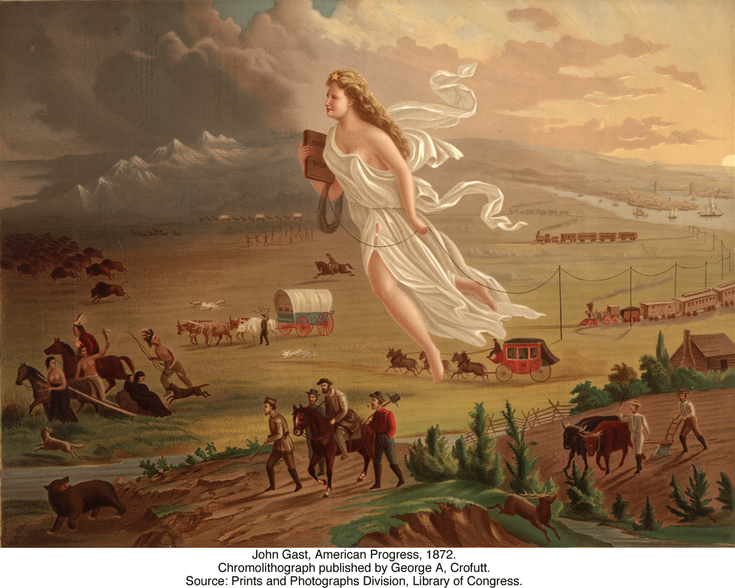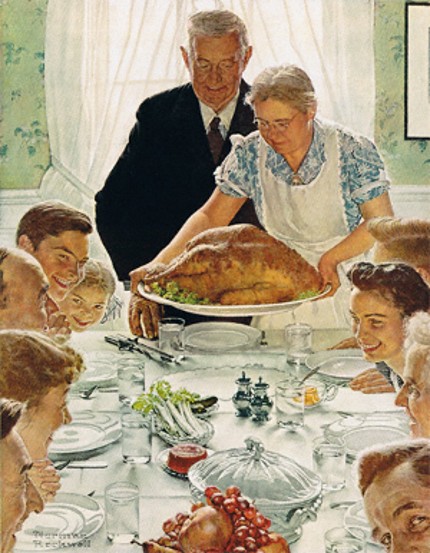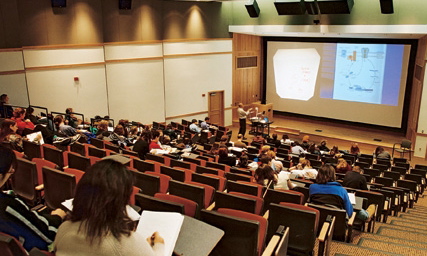“Within the credit relationship, it is not the case that money is transcended in man, but that man himself is turned into money, or money is incorporated in him. Human individuality, human morality itself, has become both an object of commerce and the material in which money exists. Instead of money, or paper, it is my own personal existence, my flesh and blood, my social virtue and importance, which constitutes the material, corporeal form of the spirit of money. Credit no longer resolves the value of money into money but into human flesh and the human heart. Such is the extent to which all progress and all inconsistencies within a false system are extreme retrogression and the extreme consequence of vileness.”
Karl Marx
The nation of debt. Credit and debt. Student loans, mortgages, and even utility bills. These abstractions define identity in the nations of the West. Most people have no idea what the reasons are for, as an example, the “closing cost” for turning off your water when you move. If you are renter, you probably move a lot. You pay extra to have your water turned on, and extra to have it turned off. You get nothing for these services. In theory you pay for the water…not when someone somewhere flips a switch. Often you pay egregious amounts for these “services”.
The basic assumptions behind debt are couched in a language of morality. They are also predicated on a model of reality that posits a future, for nobody needs credit if they have money to begin with. You have to ASK for credit. Credit institutions only exist because of need. But then, in the future, you will be ‘rich’, right?
There is in this, though, some basic contradictions. These contradictions lie at the heart of 21st century cognitive dissonance. Capitalist schizophrenia. Capital’s growth without accumulation, which started in the 1980s. Growth of non accumulated capital. Companies strive to maximize profit…reduce wages, destroy unions, and outsource. Investment in financial capital. Those in debt helped maximize profit. On the large scale, the profiting from financialization of capital is well documented. What is still at the heart of this on an individual level, is the personalizing of it in daily life. The marketing machinery at work creates an identification with consumption — you are what you buy. And to keep buying you have to go into debt. The system demands debt be paid — even if no service is offered, you will be charged. All consumption has a personal character. Not a communal character. The reality though, is that you are alone. Try to phone a credit card company. You can only speak to a robot. If that. You are really calling the void. This whole entry is a sort of introduction to the topic of addiction, which I am going to focus on in these coming weeks.
How can one not be insane? There is a literal war on the poor — and everyone but the very rich are poor. If you work, you are poor. If you work, you are involved in the debt relationship with the system. The media distracts the populace (in ever less effective ways) with a constant reproduction of the banal. It does not matter who is President. It does not matter who is appointed to the Supreme Court. You are not in contact, individually, with the Spectacle. Laws are abstract. The police are concrete. The police put you in REAL prisons and jails. The debt machine enslaves the real you.
Closing costs from the Department of Water & Power. A Collection Agency will phone you, will put you on a list if you don’t pay. You cannot debate these terms. Debt suggests a promise was made. Get an education and you will get a job. But there are no jobs. And if there are, the salary is beneath what is required to pay off that debt. Call the robot. See if it answers.
The therapist will explain you have a condition. Your anxiety and fear is treatable though. There are pills to control your dopamine. You can get MORE numb. Get numb enough and you will be a more compliant worker.
Social networking is an exercise in isolation. What you are really doing is earning money for corporations that control these sites. The only hope in this to be aware of the relationship. It doesn’t matter who is elected in the Electoral Circus. The Pentagon will keep building military bases. This year the focus is Africa. Roads are being built while you sleep.
Nick Turse writes:
“On the highway from Djibouti to Ethiopia, for example, one can see the bare outlines of this shadow war at the truck stops where local drivers take a break from their long-haul routes. The same is true in other African countries. The nodes of the network tell part of the story: Manda Bay, Garissa, and Mombasa in Kenya; Kampala and Entebbe in Uganda; Bangui and Djema in the Central African Republic; Nzara in South Sudan; Dire Dawa in Ethiopia; and the Pentagon’s showpiece African base, Camp Lemonnier, in Djibouti on the coast of the Gulf of Aden, among others.”
In Paraguay the CIA helps orchestrate a coup. Ten years ago the Bush family purchased a LOT of property in Paraguay. Connect the dots. But pay your bills. The pathology of personalizing everything is reflected in what too many people argue about; sports, elections, personalities…. distractions. Growing your own vegetables is concrete. Keeping bees is concrete. Romney and Obama are abstractions, they are no more real than Max Headroom. Less, perhaps.
Under all this is a forgetting. Social relations are reified. Alienated. But…in the future I will be rich, right?
The closing costs are on life. Debt is forever. The sadness that grips the soul when your boss walks into the workplace passes almost without notice to the conscious mind. But it sticks in your soul somewhere. It is like a parasite that burrows ever deeper. Our sense of “identity” is now a marketing tool. “Lifestyles”. That single word is the summation of advance capital. Consume. Human warmth, time to reflect, to “see”, to sit and wonder — that’s a ‘waste of time”. You cannot stop working. Cannot stop managing, researching, programming. Check the clock. Debt stares back at you, talks to you in a moralistic voice, a pastor or priest, and so maybe, take more anti-depressants. Is the food you eat tonight the stuff developed by Monsanto? You don’t need to know. Just eat it, the latest episode of whatever show is on tonight. The communal properties of food, of cooking, have become mostly isolated activities. Browsing the internet means data retrieval for Google, Microsoft, and various social networking platforms: value added for the corporations, valorizing free-user labor.
Its abstract capitalism.
Profit isn’t reinvested. Your debt makes money, but not for you.
Amanda Armstrong writes:
“Today, student debt is an exceptionally punishing kind to have. Not only is
it inescapable through bankruptcy, but student loans have no
expiration date and collectors can garnish wages, social security payments,
and even unemployment benefits. When a borrower defaults and the
guaranty agency collects from the federal government, the agency gets a
cut of whatever it’s able to recover from then on (even though they have
already been compensated for the losses), giving agencies a financial
incentive to dog former students to the grave.
When the housing bubble collapsed, the results (relatively good for most
investors, bad for the government, worse for homeowners) were
predictable but not foreordained. With the student-loan bubble, the
resolution is much the same, and it’s decided in advance.
In addition to the billions colleges have spent on advertising, sports
programs, campus aesthetics, and marketable luxuries, they’ve benefited
from a public discourse that depicts higher education as an unmitigated
social good. Since the Baby Boomers gave birth, the college degree has
seemed a panacea for social ills, a metaphor for a special kind of deserved
success. We still tell fairy tales about escapes from the ghetto to the
classroom or the short path from graduation to lifelong satisfaction, not to
mention America’s collective college success story: The G.I. Bill. But these
narratives are not inspiring true-life models, they’re advertising copy, and
they come complete with loan forms.”
(Richard C. Blum, regent of UC Berkely, is married to Diane Feinstein…and is major shareholder in two of the largest for profit schools in the country).
Debt. The promises are abstract. The daily reality in concrete. The master discourse of power…something that is crucially important when discussing addiction (my next entry) always bases itself on certain basic myths. The Puritan Shining City on a Hill, the savage land (and people!) to be subjected to conquest and control, and expansion — growth — and white privilege. The last part is the shadow or phantom myth. It’s the one not mentioned in public.
Debt (and work) is a political necessity. It is not an economic necessity. Work no longer is even tied to producing anything. Not anything concrete, anyway. The reproducing of self as consumer. ‘Problem’ people are cast out. The streets of big cities are full of them. The dried up and foreclosed rural landscape is littered with them, too. Those who were not compliant enough. Artists, activists, farmers, and craftspeople. The system needs managers to manage nothing. Not workers, for there is no work. But there is debt, thats for everyone.
Daily life in medieval cities was actually alive. It was brutal and disease ridden, but it was not a necropolis. Compared to today’s metropolitan landscape, the life of the serf seems almost idyllic. The vast conformist urban landscape (including suburbs, which are often the most drained of actual life) are pools of anxiety and depression. The paradox is that the most impoverished communities in the US are often the most alive. This is fetishized in corporate entertainment…the better to defuse it. It is pathologized and fetishized. The discourse of power again. The savage and the Dark Continent. Take the wrong freeway off ramp, and the white man’s station wagon enters a dark (!!) hostile enclave where maps and GPS are of no use. There is a desire lurking for authentic experience. Food shows with slumming gourmets. Feel good kitsch narratives, celebrity soup kitchens, all of it a paternalistic mechanism of control and stigmatizing. Real help would mean retiring the debt for real people, not just banks and corporations. But you cant hide the narratives truths underneath the paternalism. The attraction of the marginal is sexualized, is rewritten as vampire or gangster or serial killer. The discourse doesn’t lie.
Gentrification. Colonizing of the inner city. Colonizing of consciousness. Consume, while others profit and colonize, and then when it is too much, when a feeling of insanity starts to encroach, when the fear becomes palpable that “you” might not have a stake in this phantom future….medicate. Stop the pain.
Illegal drugs are a 300 BILLION dollar a year industry. Just ask the CIA.
The roads being being built in Africa by US contractors, for the US military, are not the only activity out there. Prostitution, and human trafficking are the second largest industry. Drugs are third. WAR is first. Thats the human condition explained in concrete terms.
The new blurring of police and military means the city is not just occupied by police, but in many ways created and designed by the police, by the authority apparatus. The gated communities of the affluent are a model now spreading. Check points now virtual, soon to be concrete. Travel is ever more virtual. Reality is ever more virtual. The Spectacle is not real. The future, most certainly, is not real. Debt is real. Debt and debters and repo men and collection agencies. Voices on the phone. Robot voices when you call, real voices when THEY call you. Credit scores. Foreclosures.
The future is a pernicious illusion. Prophecy is making available the hidden present. It is never in isolation. The prophet speaks “before” an audience. The prophet is a relationship.
more from Armstrong:
“Danger haunts all those who finance their education with loans: as the
website FinAid.org concisely puts it, “You are responsible for repaying your
student loans even if you do not graduate, have trouble finding a job after
graduation, or just don’t like your school” (FinAid.org). It is not possible
to escape student loans through bankruptcy. They also note that ¾ of those
who default on their loans do not finish school. Defaulting on loans most
likely results in that loan being turned over to a collection agency; the
former student having to pay all court costs for both parties; income
garnishing even of Social Security checks as well as IRS refunds; a blight
upon your credit record; and the loss of eligibility for deferments. Private
student loans have shorter time-frames and are often much more punitive
than federally backed loans – neither death or permanent disability, for
instance, will discharge this debt (Kantrowitz, “Student Loan Defaults”).”








http://occupystudentdebt.com/
Here is one of the stories at the above site.
I am an early 30’s woman who went back to school in my mid 20’s. I was the first in my family to get a college degree and worked exceptionally hard to attain it, going back to school full time for 7 years, starting at community college and ending up attending a prestigious school. I have been working since I was 14 years old, never received a handout, or assistance for school from my parents. About a year and a half ago I suffered a disability which impeded on my ability to work. Even still, I still struggled and made my private loan student loan payments hoping to return to work quickly. Luckily, my federal loans have been deferred thus far without penalty. This has not been the case with my private student loans. My student loan debt totals approximately $120,000. I will never be able to responsibly have children and I will never be able to purchase a house. I am financially worse off than I was prior to going back to school.
I am relieved that the repayment on federal student loans allows income contingent payments. But then why are these private student loans, loans that would otherwise be dischargeable if they were not taken out as “student” loans, but loans otherwise specified, more protected then federal? Why if they are so heavily protected, are we as consumers not protected from predatory lending and not given the same benefit to have temporary income based payment plans?
I have tried to negotiate with the private loan companies, Sallie Mae, Chase, and Bank of America, but being that they can garnish at will, but they have no incentive to work with me. While I certainly took out more than I realized at the time, I was so excited to be given a chance that I never believed possible in attending college at all, this situation is to say the least, a defeating surprise and excessively overwhelming.
Federal funds only allow a maximum to be borrowed, why not private student loans? Federal funds will adapt as needed to the borrower’s ability to pay as their life circumstances change, why not student loans? If I knew what I know now concerning private loans, I would have never touched them.
Unfortunately, it has come to a time where I can no longer pay the deferment fees for my Sallie Mae private student loan payments as well as make my monthly bank owned private student loan payments. Discouraged and defeated due to all of the hard work I invested in my education and the good credit report I have built, just to be pushed out of the workforce by an unforeseen illness, I am going to have to claim bankruptcy chapter 7 this month. This is especially devastating as it will not remove my $1,000+ monthly student loan payments. To discharge the student loan debt in bankruptcy: 1) requires a huge attorney fee for the time intensive fight in which I do not have funds for and 2) are rarely dismissed. To add insult to injury, the funds I will receive for my hard earned Social Security Disability Benefits will be garnished by these private student loan agencies, leaving me with NO supplemental income.
Where is MY protection? When am I going to be given the same opportunity as other Americans to start fresh – bankruptcy’s intentional start? Am I ever going to be able to pull myself out of this quicksand? I have always paid my taxes on time, why am I at a disadvantage because I was attempting to be responsible and invest in my future by going back to school? When is it OUR turn to be protected as consumers?
Really enjoy your blog John. Good stuff, brain food.
Your dialog with Guy is not to be missed. Talked briefly with him last night about it. Keep that up; you might even want to post them on the Gunfighter FB page.